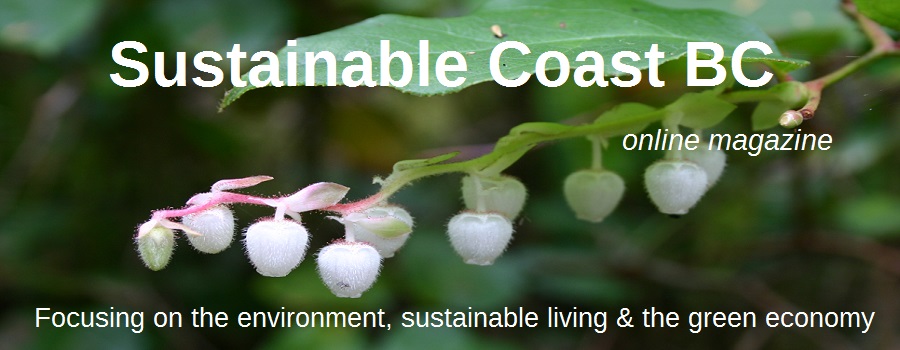Transitioning
- Details
- Written by Administrator Administrator
- Category: Current Users Current Users
- Published: 17 October 2011 17 October 2011
The recent campaign by Canada's oil industry, their unquestioning boosters in the Canadian and Alberta governments and Alberta's radical right, to brand the product of Alberta's bituminous sands as ethical oil is so ridiculous, it is difficult to know where to begin a proper critique of it.
The term "ethical oil" was first introduced on a broad national scale by perpetually angry Alberta extremist Ezra Levant in his book of the same name. Since then, it has spawned a well-funded Internet and television advertising campaign under the moniker of ethicaloil.org. Since Levant's move to Sun TV, the ethical oil blog and campaign have been taken over by Alykhan Velshi, a former aide to Jason Kenney, party strategist, neo-con analyst, and ardent defender of George W Bush.
The main thrust of Velshi's campaign, like Levant's book, is that oil from the oil sands is more ethical than oil from places like Saudi Arabia, Iran and Venezuela. The reason, according to the television ads, is that in places like Saudi Arabia oil revenues are used to fund oppression, dictatorship and denial of women's rights, while in Canada oil sands revenues yield taxable revenues that help fund democracy, peacekeeping and even pride parades.
Of course the federal and Alberta governments have jumped all over this concept, as has the oil industry and the extreme right Wildrose Alliance Party in Alberta, to the extent that it is virtually impossible to see any of these folks mention Alberta's energy industry without referring to "ethical oil." But the problem is that the concept just doesn't make any sense.
The concept of focusing on degrees of ethics is absurd. Something is either ethical or it is not, there is no more ethical or less ethical. Would we celebrate a thief who steals five cars as ethical because he's somehow better than someone who steals eight cars? Our dependence on fossil fuels has resulted in corruption, wars, pollution, climate change and displacement of Aboriginal peoples—to call any of it ethical baffles logic.
Let's pretend for a moment that we can compare degrees of ethics. There is no way that anyone can make the claim that bitumen is more ethically extracted than conventional oil. The footprint is larger, the emissions are greater, and the rate of injury and death at oil sands operations is far greater than at conventional oil wells. And the impact of bitumen extraction on the lives and communities of Alberta's First Nations is also far more significant than that of conventional oil. Therefore, if our goal is to focus on only the most ethical oil, shouldn't we abandon bitumen altogether and concentrate only on conventional oil? We currently produce enough conventional oil to meet all of Canada's needs, so why even go down the less-ethical road to bitumen?
Much of the campaign currently seems to be focused on getting the Americans to approve the Keystone XL pipeline so that we can ship more Alberta bitumen to the United States. The argument is that, because Alberta bitumen is ethical, it is much better for the US than relying on unethical oil from places like Saudi Arabia.
Somehow, however, they don't seem interested in extending that same logic to Canada. Currently Canada imports a significant amount of oil to supply the Eastern and Central provinces. Most of that oil is what the ethical oil commercials refer to as conflict oil. We can't currently get Alberta oil to those parts of Canada because most of our pipelines are designed to go south, and even if they weren't, the North American Free Trade Agreement prohibits us from cutting exports to the US in order to supply our own needs. So, if these folks seriously believe what they say, shouldn't they be advocating pulling Canada out of NAFTA's energy clause and building pipelines going east instead of south so that we can get our own country off of conflict oil?
The main message of the ethical oil campaign is about what is done with the proceeds of oil in places like Saudi Arabia. Ignoring the fact that we have no idea how ethically the owners of North American oil companies are spending their oil-generated wealth, there is no denying that the Saudi regime uses oil profits to fund oppression and repression of their peoples. They also use military and para-military equipment imported from Canada for those purposes, but I have yet to hear Ezra Levant suggest that the Canadian government prohibit the selling of military equipment to Saudi Arabia.
It's also important to note, if the goal of the ethical oil campaign is to deprive the Saudi regime of oil revenues, that one of the main recipients of Alberta bitumen, by way of the Keystone XL pipeline, is a refinery that is half-owned by the Saudi Government. In other words, the Keystone XL pipeline will result in the Saudi regime having even more money with which to oppress its people and deny women basic rights. How can the ethical oil folks seriously justify supporting this?
In the end it's clear that the ethical oil movement is just a shallow marketing regime for Alberta's oil industry, and that actual ethics are nowhere near the top of their list of priorities. If they were genuinely promoting ethical oil as they have defined it, then their campaign would be calling for ending development of the tarsands, getting out of NAFTA, building pipelines eastward, stopping military exports to Saudi Arabia, and blocking construction of the Keystone XL pipeline. And quite frankly, that would be a campaign I could seriously get behind.
=======================
Ricardo Acuña is the executive director of the Parkland Institute, a non-partisan, public policy
research institute housed at the University of Alberta. This article originally appeared in VUEweekly.
